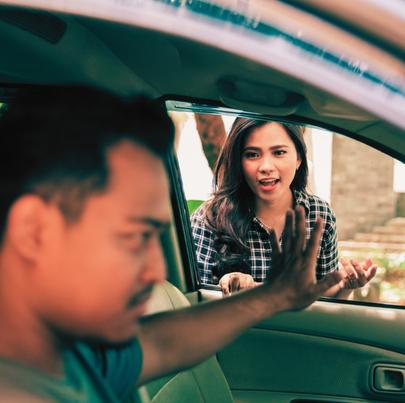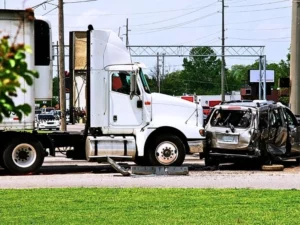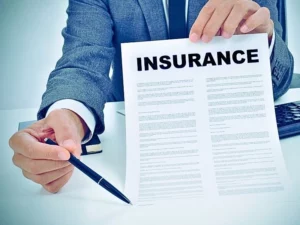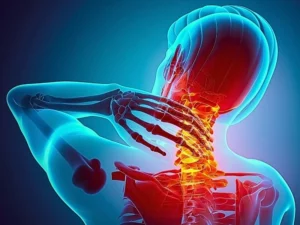Although Uber has strict safety protocols for drivers, Uber accidents are on the rise. In 2018, Uber drivers were involved in more than 36,000 fatal rideshare accidents around the country.
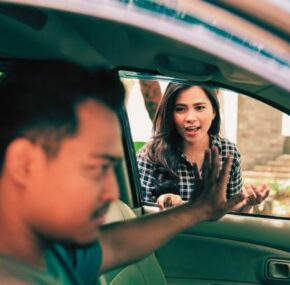
Uber Safety is Under Fire
Since Uber launched its rideshare services in 2011, the company has been hard-hit with accident and injury reports. According to a University of Chicago study, traffic deaths caused by rideshare accidents account for about 1,100 deaths each year. It’s estimated that fatalities have risen by 3 percent since 2011 and rates may be even higher in busy urban areas like Atlanta, Boston, Chicago, Houston, Los Angeles, and New York where rideshare services are used on a daily basis by thousands of people.
In recent years, Chicago rideshare lawyers have handled numerous personal injury claims and civil lawsuits regarding Uber rideshare accidents. Reports of Uber safety violations include incidents of the following actions by Uber drivers transporting passengers:
- Drunk or impaired driving
- Verbal abuse
- Sexual harassment
- Sexual assault and rape
- Physical assault
- Stalking and kidnapping
According to a recent investigation of Uber safety protocols, the rideshare giant is facing at least 151 safety violations with hefty fines totaling more than $1,132,500. While more serious actions like physical and sexual assaults against passengers resulted in termination and criminal actions, many drunk driving incidents were brushed under the rug.
In California, over 154 complaints of drunk Uber drivers have been reported, but Uber only investigated 21 complaints and only suspended 25 drivers. In some cases, suspended drivers were permitted by Uber to continue picking up and transporting passengers, even while under the influence of alcohol and/or drugs.
Uber Safety Protocols in Place
Over the past few years, Uber has taken numerous actions to update and enforce passenger safety. After being hit with harsh fines and civil lawsuits by rideshare lawyers, Uber has implemented new safety protocols to protect drivers and passengers from harm.
Unlike public transportation vehicles like taxi cabs, buses, and trains, rideshare vehicles are regulated by state laws rather than federal laws, because they are not considered common carriers. When Uber accidents and injuries occur, Uber is not bound by the same safety standards or financial liabilities as public transportation vehicles. Although state laws impacting Uber safety may vary, Uber does have strict safety guidelines in place that protect drivers, as well as passengers.
Background Checks
All Uber drivers are required to go through background checks prior to employment. These checks include a multi-step screening process that looks for a criminal record and drunk or impaired driving violations. If the driver is hired, he/she must go through the screening process again each year.
Identity Checks
Uber enforces personal identity checks by asking drivers to periodically take and submit recent photos of themselves. Uber then compares and matches the photo against the driver’s on-file identification to ensure that the right driver is behind the wheel.
Some state regulations require Uber drivers to display a sign or sticker that helps riders identify an Uber driver and vehicle when the driver is on-call. Uber provides drivers with a removable identity sticker that must be properly placed on the vehicle’s windshield. Failure to display the sticker on both front and rear windshields can result in a violation of local ordinances with tickets and fines up to $1,000.
Driving Hours
State and local regulations may enforce driving limits for Uber drivers while they are on rideshare platforms. Uber’s Driver App keeps track of driving time and alerts drivers when they are approaching their drive-time limit. Following required time offline, the Driver App resets and the driver can go back online to receive trip requests. This app is helping to prevent accidents and injuries seen by Chicago rideshare lawyers.
Vehicle Inspections
Since Uber drivers are considered independent contractors and operate their own personal vehicles for Uber rideshare services, Uber requires regular vehicle inspections. A vehicle must be inspected by a state-licensed Automotive Repair facility either every 12 months or every 50,000 miles, regardless of the vehicle’s age. Regular maintenance and vehicle repairs must meet specific safety standards.
RideCheck Safety App
In 2019, Uber launched a new RideCheck Safety App to protect passengers. Through smartphone technology that uses GPS data, the RideCheck App is designed to flag unusual events or suspicious activity during a rideshare trip and detect the passenger’s exact location. The passenger can terminate the ride or press a 911 button to report an Uber accident and get medical help for injuries.
Passenger Privacy
To protect a passenger’s privacy, Uber uses technology that keeps a passenger’s phone number private. When calling an Uber for rideshare services, the Uber App prevents drivers and other passengers from seeing the number. When the trip is completed, the Uber App protects passenger privacy by concealing specific pickup and dropoff addresses in a driver’s trip history.

